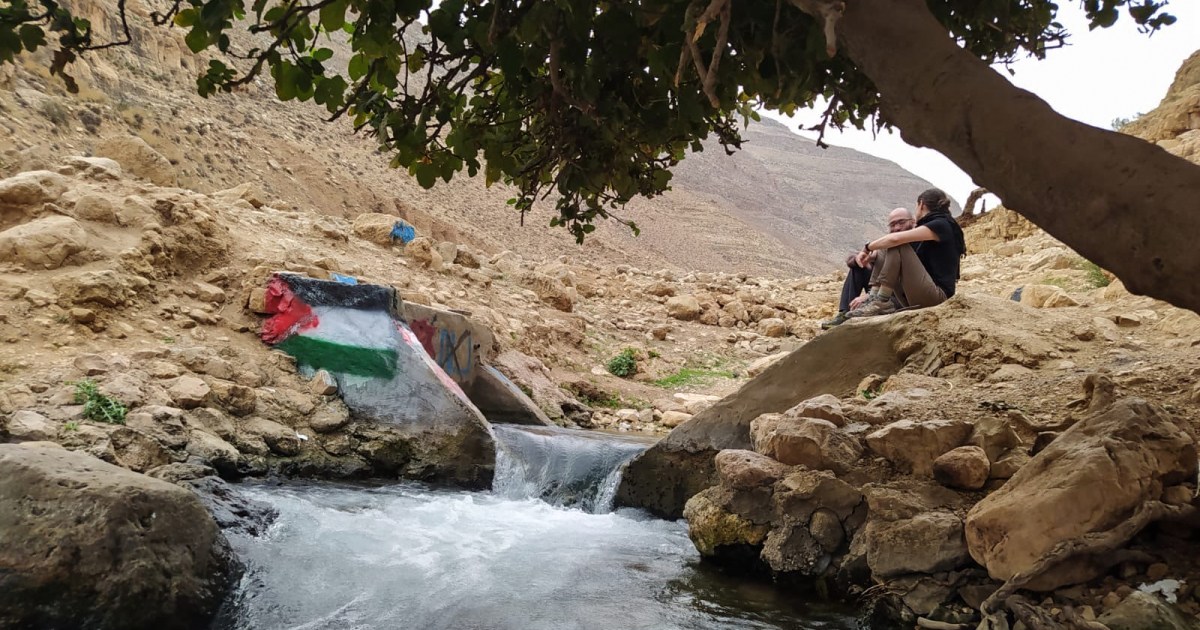On a sweltering summer day, the insides of villagers’ homes in Ras Ein al-Auja smelled of rot. The villagers said that the day before, settlers had – not for the first time – severed the power lines between their homes and the off-grid electricity networks the community had built up with help from humanitarian organisations, causing the food in their refrigerators to spoil.
Israeli authorities have long denied access to basic services such as water, electricity and sanitation to this Palestinian community and others in Area C, and almost all of these communities face demolition orders. Israel typically accuses Palestinians of building without permits to justify the orders, but it makes it near impossible to acquire the permits.
The Israeli military did not respond to Al Jazeera’s request for comment for this article.
According to Ghawanmeh, Israeli settlers from the three surrounding outposts – all established in the past two years – cut the off-grid electricity systems “five or six times a week”.
Last year, settlers prohibited the Bedouins from accessing the al-Auja spring, which locals depend on for both their herds’ and their own water needs. The Palestinian villagers and local reports indicate that Israeli military forces allowed the settlers to block access to the spring.
Now, all of the land where the Palestinian locals had grazed their herds is off-limits, forcing them to keep their livestock penned up.
Ibrahim Kaabneh, 35, has only 40 sheep and goats left. He once had 250, but he said he sold most of his herd after he and a relative were attacked by settlers last year and the settlers stole his relatives’ herd.
“I needed to get money to feed the rest of the herd before they would die or be stolen by the settlers,” he said inside his sparse family home with his children looking on quietly in the summer heat.
With settlers attacking them if they bring out their herds to graze and no longer able to access the water spring as well as being denied access to the nearby water pipes connected to Israeli settlements, Kaabneh now must spend about 200 shekels ($60) a day on fodder for his animals while paying for water tanks every two days.
“Even the livestock that we still have, we feel like they’re not ours,” Kaabneh said. “Any moment, they can be stolen. Any moment, they can be attacked.”
Kaabneh lives about 200 metres (220 yards) away from a second Israeli outpost that was established a year ago. The outpost, containing a corrugated iron pen allegedly stolen from an already-expelled Bedouin community nearby, is a preview of what the newest outpost will look like as it expands, according to locals.
The outpost established in August is even closer to the Bedouins living here. This has added to the fears among community members who feel “suffocated” by encroaching settlers. Since the war in Gaza started, settlers have burned homes in the community and are alleged to have assaulted community members, including Kaabneh’s uncle, who was struck by a bulldozer. Settlers also come to the village inappropriately dressed or drunk, the Palestinians say.
Kaabneh says he has trouble sleeping, and he is wary of leaving his home even to get groceries because he fears for his family. Women and children avoid leaving their homes for more than an hour or two at a time.
An access road to the community – built with funding from the United States Agency for International Development, as a billboard attests – now has at its entrance a series of concrete blocks painted with Israeli flags, and community members face constant harassment to run the most basic of errands.
“Once we step outside of the house, it seems like we’re doing something wrong or we’re doing something illegal,” Ghawanmeh explained. “Children, the women and everyone here is in constant fear and in constant danger whenever they leave the house for whatever necessary reason.”
Source: Aljazeera

Leave a Reply